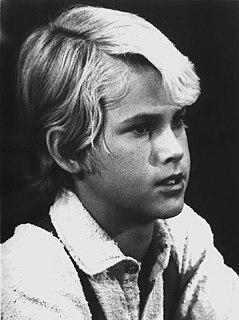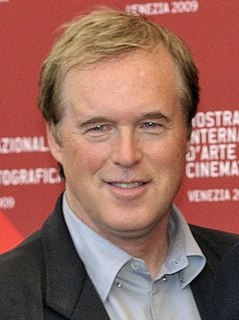A Quote by John Waters
I was thinking about sort of the similarities between "art movies" and lowbrow movies like kitschy sexploitation films. I think they share certain qualities, whether they're hyper-stylized or overly emotive or just very visual.
Related Quotes
I love movies; I grew up loving movies. I've always loved movies. I never thought about making movies until I took art classes and then I started studying different artists. As you study paintings, you see light and shadow, of course - Rembrandt, Eugène Delacroix. You start to understand the relationship between people and art, and images. For me, between movies that I watched and art, it was like, I'd love to make moving art. Moving pictures.
Richard Donner made great movies. Seminal movies. The Academy, though, and we have to be careful here, should recognize popular films. Popular films are what make it all work. There was a time when popular movies were commercial movies, and they were good movies, and they had to be good movies. There was no segregation between good independent films and popular movies.
But strangely, [in] the original Matt Helm books, he's just this super hardass assassin. They sort of made it into a sexy romp for the movies. The books are very, very dark. I also watched 'OSS 117: Cairo, Nest Of Spies,' which is a French film. They just made a second one, I think, which is based on like, 100 novels. They're just fantastic. They're set in the '60s. A lot of the visual inspiration definitely came from 1960 James Bond movies and 'OSS 177' and also 'Pink Panther' movies.
There are a bunch of different movies I feel that way about. However, there is a debate because as you may know after MST3K ended there have been things like Cinematic Titanic that are the children and the grandchildren of this way of dissecting movies and making fun of them and in a way celebrating the absurdity of those movies as well. There are certain movies that sort of fit into the MST3K paradigm which is hidden gems, these weird horror/sci-fi/fantasy movies.
All of my movies are about how I wish the world would work. I've made very few movies about how the world worked. I could name them on one and a half hands, about how my movies have been very reflective of how the world was exactly. A lot of my movies are really about the way I wish the world was, and that's what this whole art form is all about. It's an interpretive art form.
We were film geeks. We devoured everything: really obscure art films, foreign films. We were the kind of guys that lived at the Cinematheque. But at the end of the day, your favorite movies are like everybody else's favorite movies. Because those are the movies that become a touch point where you can connect to other people.
I see everything visually. It's very visual for me. And so I think, from a plotting standpoint or what have you, there's obviously a certain amount of internal thinking that goes on in a novel (that) you can't do...in a screenplay. But I think, pacing wise, my novels move quickly because (they aren't overly) descriptive.
I think the industry tends to like to think in the narrow sort of mindset of a businessman, and businessman absolutes, and movies really exist in a much grayer region of dreams and stuff like that, and instinct is prized in movies, it's not prized with the businessmen in movies, but movies themselves often reward instinct rather than pie charts.
Film is a wonderful thing and it can be so many different things. I don't want to turn my back on any of the different ways movies can be. I love the movies. I love going to the films. I like very serious films, I love foreign films, and I love big, fun movies - as long as they're well made and they've got good scripts. That's the most important thing.
Oddly enough, most of the books written about the subject aren't very good because they just focus on the more hateful movies that they did very early, early on when they were trying to, you know, get Germany into the war, whether it be anti-Semitic movies like "Jud Suss," or "The Eternal Jew," or movies made against the Polish to help, you know, create sympathy for them to invade Poland. You know, there'd be movies where there would be some German girl living in Poland who's raped by the Polish or something.





































